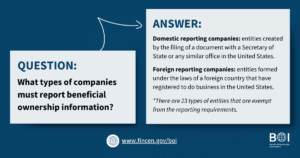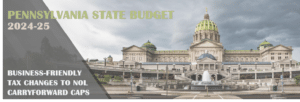On November 18, 2020, the Treasury Department and the Internal Revenue Service released additional guidance on the deductibility (or rather, the non-deductibility) of certain covered payroll and non-payroll expenses paid with the loan proceeds from their Paycheck Protection Program (PPP) loans. The guidance was provided through the issuance of both a Revenue Ruling and a Revenue Procedure.
Essentially, the guidance concludes that for calendar-year taxpayers who borrowed monies under the PPP and paid expenses otherwise eligible for tax deductibility, if, at the end of the 2020 taxable year, the taxpayer has a reasonable expectation of reimbursement [for those eligible expenses] in the form of loan forgiveness on the basis of the eligible expenses it paid or accrued during the covered period, those expenses may not be deducted in 2020.
Revenue Ruling 2020-27, 2020-50 IRB holds that a taxpayer computing taxable income on the basis of a calendar taxable year may not deduct eligible expenses in its 2020 taxable year if, at the end of the 2020 taxable year, the taxpayer has a reasonable expectation of reimbursement in the form of covered loan forgiveness on the basis of the eligible expenses it paid or accrued during the covered period. The Ruling cites a number of prior judicial decisions to support its decision to disallow the deduction of the otherwise-eligible expenses.
The Treasury and Internal Revenue Service rely on an interpretation of §265(a)(1) of the Code and §1.265-1 of the Income Tax Regulations, which provide that no deduction is allowed for any amount otherwise allowable as a deduction to the extent the amount is allocable to one or more classes of income other than interest wholly exempt from the taxes imposed by subtitle A of the Code. Note that this statuatory rule applies “whether or not any amount of income of that class or classes is received or accrued.”
It is, and has been, our opinion that the statutory framework for Treasury’s and the Internal Revenue Service’s position is sound and bedded in solid tax law theory. Thus, the guidance released yesterday, though helpful in clarifying the issue, was not unexpected.
Revenue Procedure 2020-51 provides a “safe harbor” allowing a taxpayer to claim a deduction in the taxpayer’s taxable year beginning or ending in 2020 (2020 taxable year) for certain otherwise deductible eligible expenses, if:
- The eligible expenses are paid or incurred during the taxpayer’s 2020 taxable year,
- The taxpayer receives a loan (covered loan) under the PPP, which at the end of the taxpayer’s 2020 tax year, the taxpayers expects the loan to be forgiven in a subsequent year, and
- In a subsequent year, the loan is NOT forgiven, in whole or in part, or the taxpayer decides never to request forgiveness of the covered loan.
The taxpayer may be able to deduct some or all of the eligible expenses on the taxpayer’s
- timely filed, including extensions, original income tax return or information return, as applicable, for the 2020 taxable year,
- an amended return or an administrative adjustment request (AAR) under IRC §6627 of the Internal Revenue Code for the 2020 tax year, or
- the taxpayer’s timely filed, including extensions, original income tax return, as applicable for the subsequent taxable year.
As we have noted in prior posts and communicated in recent webinars, there appears to be support on both sides of the aisle in Congress to get this matter resolved through the allowance of a tax deduction for these expenses. However, given the lame duck session we now find ourselves in and the animosity that seems to be in place by the present administration and the inbound administration, it is not looking positive at this time that the Treasury’s and Internal Revenue Service’s position will be reversed through legislative action any time soon.
Questions and comments may be directed to Bob Grossman, Don Johnston or Mike Weber at 412-338-9300.
Related Posts:
- New Interim Final Rule Provides More PPP Loan Forgiveness Clarification
- More PPP FAQs Released by the SBA
- SBA Issues New PPP Loan Forgiveness FAQs
- New SBA Interim Final Rule Offers Further Guidance on PPP Loan Forgiveness
- Simpler PPP Forgiveness Application & Updated Program Guidance Released by SBA
- SBA Offers Additional PPP Loan Forgiveness Information
- FAQs Issued to Further Clarify Guidance on PPP Loans
- SBA Issues Additional Guidance for Paycheck Protection Program Loans
- Paycheck Protection Program Loans (PPP) Available Under the CARES Act






